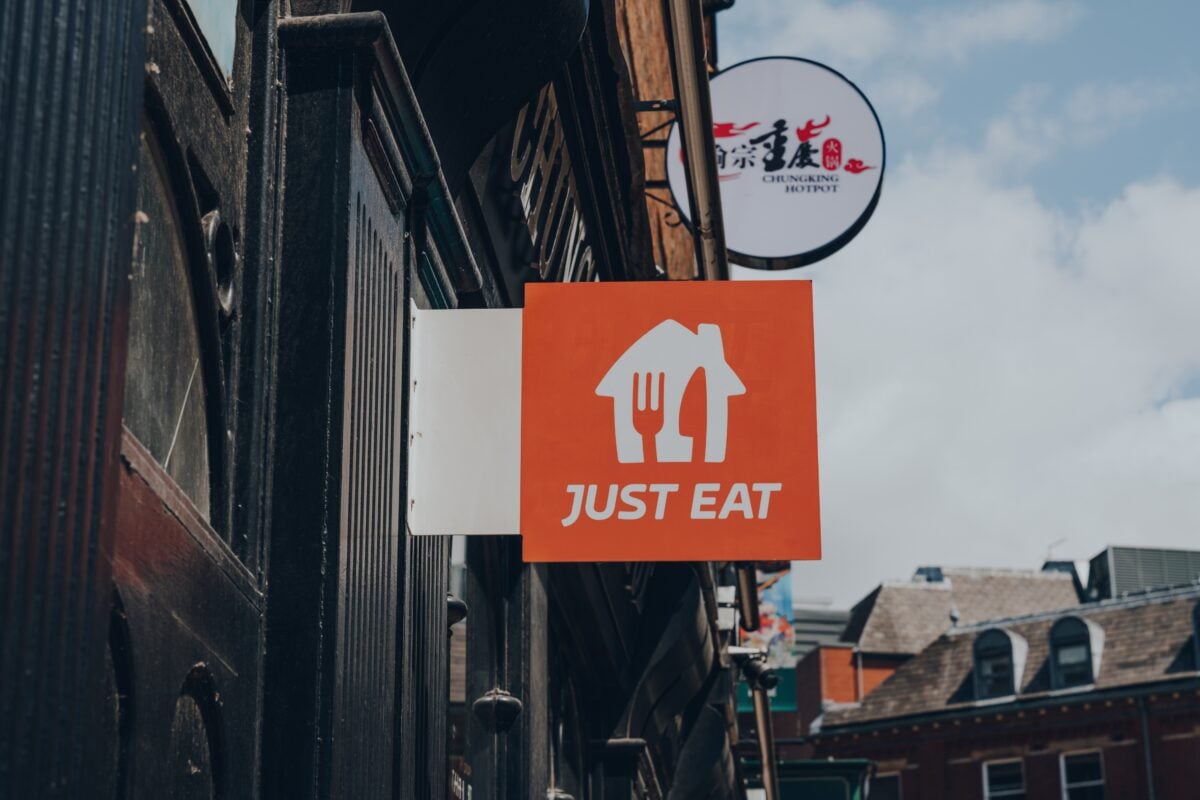TLDRs;
- Just Eat launches Europe’s first walking food delivery robots in Zurich, partnering with Swiss robotics firm RIVR.
- Robots can climb stairs, carry 40 liters, travel 15 km/h, and operate in all weather conditions.
- The trial reflects nearly a decade of experimentation in robotic delivery and growing economic pressures.
- Just Eat plans to expand robot couriers beyond Zurich, possibly into other sectors like retail and convenience stores.
Amsterdam-based food delivery giant Just Eat Takeaway.com has rolled out an ambitious pilot in Zurich, Switzerland, testing autonomous robots equipped with wheels and legs to deliver food orders.
This marks the first European trial of walking delivery robots powered by physical AI, positioning Just Eat at the forefront of on-demand delivery innovation.
The program is being conducted in partnership with Swiss robotics company RIVR, whose robots are built to handle complex urban environments. Unlike traditional delivery bots confined to smooth pavements, RIVR’s machines can climb stairs, cross curbs, and navigate in varied weather conditions. Each robot can travel at speeds of up to 15 km/h while carrying 40 liters of food, making them suitable for real-world operations.
Currently, the robots are delivering meals from Zekis World, a popular Turkish fast-food restaurant in Zurich. Customers place orders, which are loaded into the robot at the restaurant. Upon arrival, the robot is unlocked by the customer, ensuring secure handoffs. Each delivery is also monitored remotely for safety and reliability.
https://twitter.com/JustEatTakeaway/status/1958492186514764130
Decade-Long Journey to Viability
Just Eat’s Zurich trial is not its first foray into robotic delivery. The company first experimented with autonomous delivery robots in London in 2016, partnering with Starship Technologies. Those robots logged over 5,000 miles accident-free, but scaling the system proved difficult.
By 2018, Starship’s fleet had collectively traveled over 100,000 miles and interacted with 15 million people, all without major incidents. Yet, widespread rollout stalled due to regulatory uncertainty, cost factors, and consumer hesitation.
Now, nearly eight years later, Just Eat is revisiting robotic delivery with a new partner and advanced technology. The Zurich pilot reflects a maturing robotics sector that has overcome earlier limitations.
Cost Pressures Drive Automation
The renewed push toward robotic couriers is not only about innovation, it is also about economics. Delivery companies have long sought to reduce operating costs, especially with fierce competition from Uber Eats and Deliveroo. Early robotic delivery models once targeted costs as low as $1 per order, making automation attractive for scaling.
For Just Eat, which reported a gross transaction value of €26.4 billion in 2023, even small cost savings per delivery could result in massive operational efficiencies. Robots could also help alleviate labor shortages that continue to challenge the gig economy delivery sector.
RIVR’s robots appear particularly suited to this purpose. Their ability to move seamlessly through complex city terrains while maintaining high safety standards could finally unlock commercial viability for robotic couriers.
Looking Beyond Zurich
If the Zurich pilot proves successful, Just Eat plans to expand robotic delivery to other European cities, potentially extending beyond food to include retail and convenience store deliveries. The company has already tested drones in Ireland, signaling a multi-pronged approach to delivery automation.
Industry analysts note that the global service robotics sector, valued at $9.01 billion in 2016, was projected to surpass $24 billion by 2022. While adoption has taken longer than expected, the Zurich pilot suggests that robots may soon become an everyday part of urban logistics.


